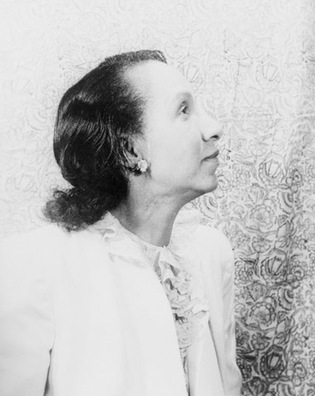 loading
loading
Old Yale“Eloquence in the cause of freedom”Shirley Graham Du Bois ’40DRA was a composer, playwright, activist, biographer, and more. Judith Ann Schiff is chief research archivist at the Yale University Library.  Library of CongressShirley Graham Du Bois ’40DRA (1896–1977) was the first African American to write an opera about African Americans. View full image“We are a race of artists. What are we doing about it?” asked Shirley Graham in 1937. Graham herself—later Mrs. W. E. B. Du Bois—did a tremendous amount: she was nationally and internationally recognized as a composer, playwright, author of popular biographies, and civil rights activist. Born in 1896, Shirley Graham was the daughter of David A. Graham, a Methodist minister and missionary to Africa. She had two sons with her first husband, but divorced him in 1927, soon after she moved to Paris to study music at the Sorbonne. In 1931, she enrolled in the Oberlin Conservatory of Music. There she completed the music and libretto for Tom-Tom, an opera tracing the history of African music in the United States. It was the first opera by an African American about African Americans. Tom-Tom was performed that year, with great success, before an audience of 10,000 in Cleveland Stadium, and it aired on NBC to favorable reviews. It has not been produced since, but it inspired a number of imitators. After graduating with an MA in 1936, Graham headed the Federal Theatre Project Negro Unit in Chicago for two years. Then, to perfect her playwriting skills, she entered the Yale School of Drama. She described her time there as “all I expected it to be and more” and “a piece of bread to a starving man.” She wrote a number of plays—and also danced, acted, played the drums, and composed music for the theater. Her one-act play It’s Morning was a forerunner to Toni Morrison’s Beloved, featuring a slave woman who kills her daughter after the child has been sold. It was directed by Otto Preminger, then on the drama school faculty. At Yale, Graham became friends with and collaborated with other students who, like her, had won Julius Rosenwald Fund fellowships for African Americans doing graduate and professional study. Anne M. Cooke ’44PhD studied early English actors. Fannin S. Belcher ’46PhD would become a professor at West Virginia State University. Graham wrote the music for plays by Owen Dodson ’39MFA, later a noted writer and Howard University professor. Graham left Yale in 1940, without completing her PhD, to direct YWCA theater work in Indianapolis. But with America’s entry into World War II, resources dwindled. She wrote for employment advice to an older friend of her parents, the great sociologist W. E. B. Du Bois. He had been a cofounder and officer of the NAACP, and in 1943 Graham was hired as field secretary for the organization. She began writing inspirational biographies of notable African Americans, especially for younger audiences. Her biography of Frederick Douglass, There Once Was a Slave, won a prize in 1946 as the year’s “best book combating intolerance in America.” Over a dozen biographies followed, several winning her prizes and fellowships. In 1951, she married Du Bois. After many legal battles with the government due to his alleged link with the Communist Party, in 1961 they renounced their US citizenship and emigrated to Ghana. Her husband lived for only two more years. After his death, she stayed in Ghana and for a time helped develop the field of telecommunications there with Ghana Television. In 1966, after a coup, she moved to Cairo. She lived with her son, David, and devoted herself to international liberation causes. Among the many honors Graham Du Bois received in her long and active life was an invitation to speak, along with Maya Angelou and Gwendolyn Brooks, at Yale’s 1970 Chubb Conference on the Black Woman—one of the first of its kind in the nation. Three years later the University of Massachusetts conferred an honorary doctorate on her, calling her “an indomitable foe of oppression, ignorance, and intolerance, . . . a vessel of eloquence and truth in the cause of freedom.” Graham DuBois died in Beijing in 1977.
|
|
1 comment
-

Bob Michaelson, 10:31pm March 20 2017 |  Flag as inappropriate
Flag as inappropriate
The comment period has expired.I am surprised that so distinguished an archivist as Judith Schiff would write that Shirley Graham's Tom-Tom was "the first opera by an African American about African Americans." Although not performed in full until 1972, Scott Joplin's Treemonisha was written in 1910 and published in the form of a piano-vocal score in 1911.